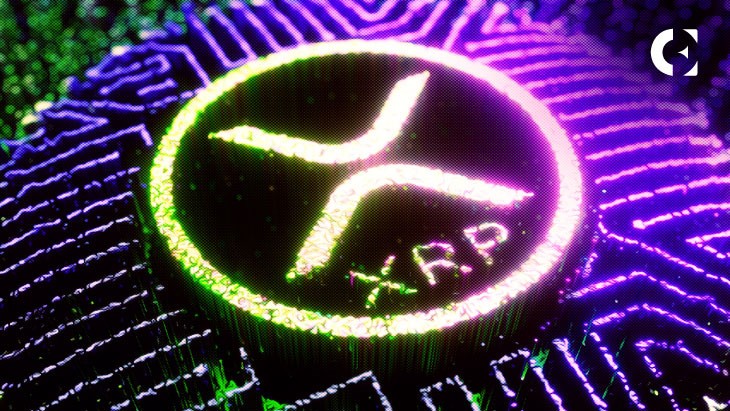Crypto Community Accuses Ripple XRP of False Decentralization Claims

Some crypto community members are accusing Ripple, the company behind XRP, of falsely proclaiming that its native token XRP is decentralized and permissionless. Justin Bons, founder of Cyber Capital, claims to have found a “smoking gun” that proves Ripple has de facto control over the entire network.
Bons pointed out that XRP’s consensus algorithm, Unique Node Lists (UNLs), is based on a list of trusted nodes that centralized parties, including the Ripple Foundation release. Nodes not on these lists are untrusted and do not participate in consensus.
However, the researcher noted that while UNLs can be modified by users, a user can get kicked off if there is insufficient overlap with the rest of the network. He concluded that “XRP is not trustless,” adding that choosing who to trust is not the same as trustlessness.
2/25) XRPs consensus is based on UNLs (Unique Node Lists)
Literal lists of trusted nodes released by centralized parties, including the foundation…
Nodes not on this list are untrusted & do not participate in consensus
However, users can modify the UNL, choosing who to trust
— Justin Bons (@Justin_Bons) May 6, 2023
Bons’ claims have been met with mixed reactions from the XRP community. Matt Hamilton, a former core developer at Ripple, commented:
We have been over this many times already. Each node is responsible for its own UNL. They choose the contents of that UNL and if they want to use a UNL published by a 3rd party. There is no central authority.
Furthermore, Bons argues that XRP’s lack of block rewards and incentives makes it difficult for new validators to coordinate, which “gives the Ripple Foundation even more control over the network.”
On the other hand, David Schwartz, Ripple’s chief technology officer, clarified that validators do not have control over transaction inclusion. “They solve the double spend problem, so they can choose which of two equally-valid but conflicting transactions is included.”






 Bitcoin
Bitcoin  Ethereum
Ethereum  Tether
Tether  USDC
USDC  TRON
TRON  Dogecoin
Dogecoin  Cardano
Cardano  Bitcoin Cash
Bitcoin Cash  Chainlink
Chainlink  Zcash
Zcash  Monero
Monero  LEO Token
LEO Token  Stellar
Stellar  Litecoin
Litecoin  Hedera
Hedera  Dai
Dai  Cronos
Cronos  Tether Gold
Tether Gold  OKB
OKB  Ethereum Classic
Ethereum Classic  KuCoin
KuCoin  Gate
Gate  Algorand
Algorand  Cosmos Hub
Cosmos Hub  VeChain
VeChain  Dash
Dash  Tezos
Tezos  TrueUSD
TrueUSD  Stacks
Stacks  IOTA
IOTA  Decred
Decred  Basic Attention
Basic Attention  Theta Network
Theta Network  NEO
NEO  Synthetix
Synthetix  Qtum
Qtum  Ravencoin
Ravencoin  DigiByte
DigiByte  0x Protocol
0x Protocol  Zilliqa
Zilliqa  Nano
Nano  Holo
Holo  Siacoin
Siacoin  Numeraire
Numeraire  Waves
Waves  Hive
Hive  Ontology
Ontology  Status
Status  BUSD
BUSD  Enjin Coin
Enjin Coin  Pax Dollar
Pax Dollar  Lisk
Lisk  Steem
Steem  Huobi
Huobi  OMG Network
OMG Network  NEM
NEM  Bitcoin Gold
Bitcoin Gold  Augur
Augur  HUSD
HUSD